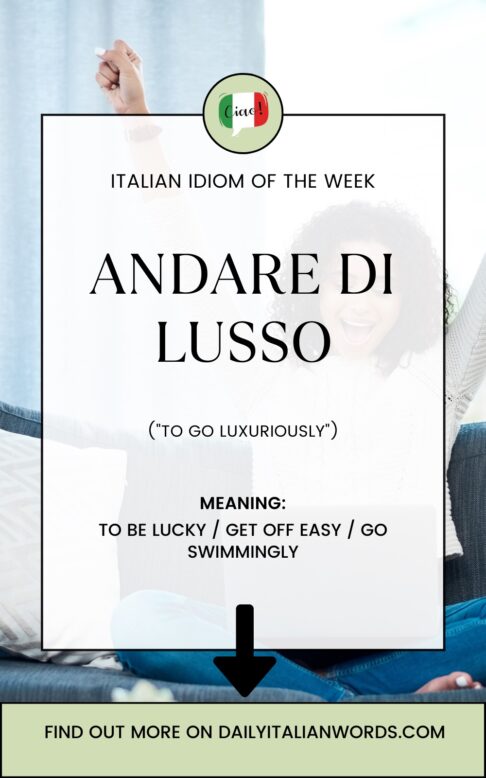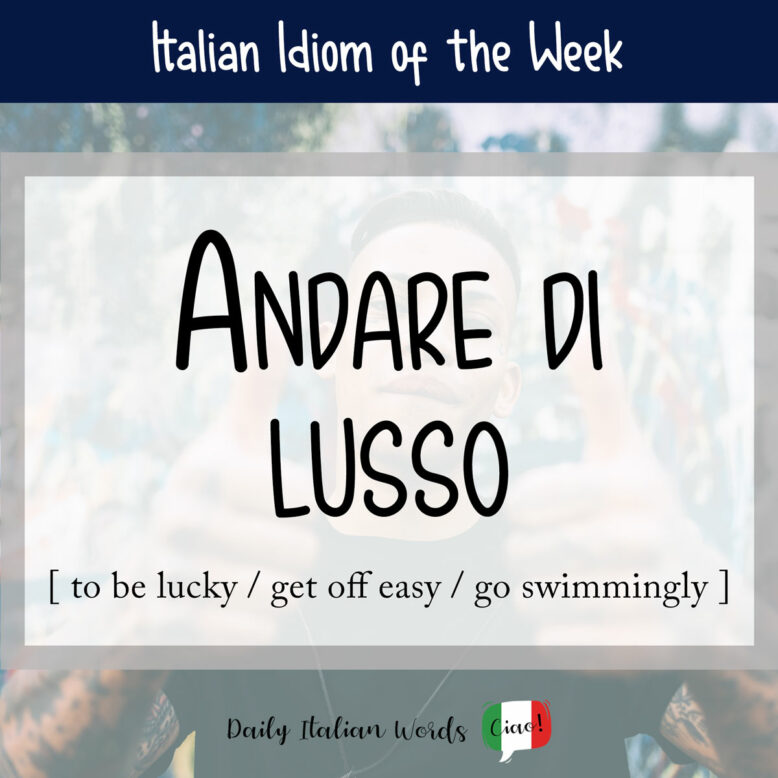Imagine you visit a museum, expecting to pay around $20 per person for entry, but then you find out that it’s actually half-price admission that day. Or say that you don’t study for an exam, but still manage to pass with a good grade. In Italian, they might describe these kinds of situations using the idiomatic phrase andare di lusso, which is used when something goes well due to pure luck or despite unfavourable circumstances.
Some possible translations include “to be lucky“, “to luck out“, “to get off easy“, or “to go swimmingly“.
Andare di lusso
To be lucky / get off easy

Andare is a verb that means “to go” whereas lusso is a noun meaning “luxury” or “splendour“, so you could literally translate the phrase as “to go luxuriously“.
You will almost always see this phrase used with indirect object pronouns such as mi (to you), ti (to you), gli (to him/them) and so on.
- Mi va di lusso. = I luck out.
- Ti va di lusso. = You luck out.
- Gli va di lusso. = He lucks out.
- Le va di lusso. = She lucks out.
- Ci va di lusso. = We luck out.
- Vi va di lusso. = You (all) luck out.
- Gli va di lusso. = They luck out.
Pensava di dover rimanere in stazione ad aspettare per ore a causa dello sciopero, invece gli è andata di lusso e il treno è arrivato con un ritardo di soli dieci minuti.
He thought he had to remain at the station and wait for hours because of the strike, but he lucked out and the train arrived with only a 10 minute delay.
Com’è andata la verifica di italiano? – Bene, erano tutte domande facili. Mi è andata di lusso, se pensi che non ho studiato un bel niente!
How did your Italian exam go? – Well, all the questions were easy. I got off easy, if you consider that I didn’t study at all!

Heather Broster is a graduate with honours in linguistics from the University of Western Ontario. She is an aspiring polyglot, proficient in English and Italian, as well as Japanese, Welsh, and French to varying degrees of fluency. Originally from Toronto, Heather has resided in various countries, notably Italy for a period of six years. Her primary focus lies in the fields of language acquisition, education, and bilingual instruction.


